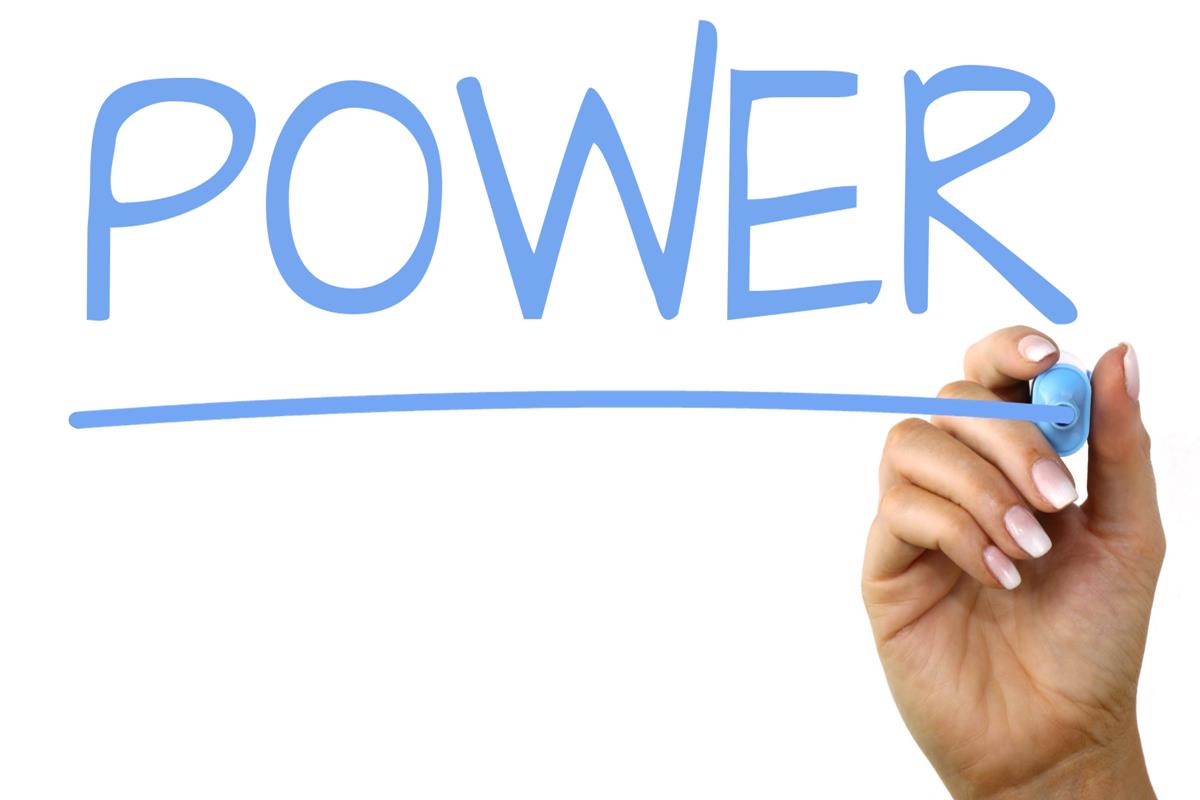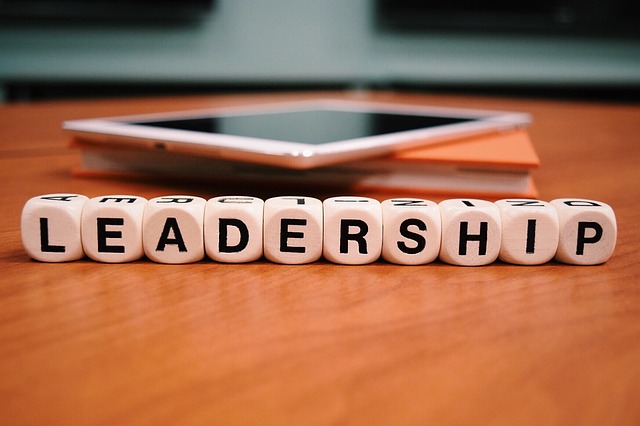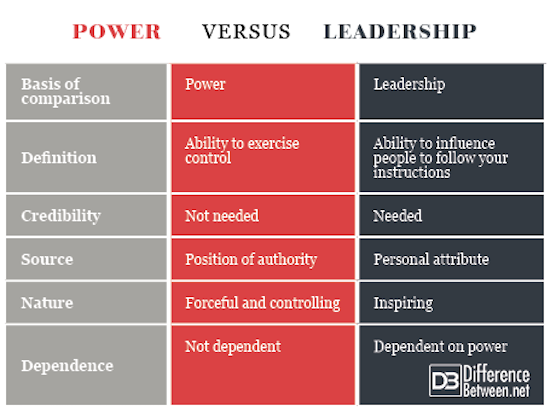Difference Between Power and Leadership
It’s fair to conclude that an individual can have the ability to influence, develop and enable without necessarily being the leader of the team. In many situations it is possible to exert influence without being in authority. People with power have ability to influence following and to some extent control the action of others. If you observe a group of people working together, you will be able to determine who is the leader of the group.
Power is a person’s ability to control activities of other individuals. Leadership is the ability to inspire people to follow your instructions voluntarily and manage the completion of a project without exercising any form of force. Traditionally, it was believed that power was derived from leadership. However, in many instances, power leads to leadership. However, the two are interrelated and can be a source of confusion between different people who don’t fully understand the differences. Leadership is dependent on power; a good leader is he/she who has some form of power.

What is Power?
Power is broadly defined as the ability of an individual to exercise some form of control over another individual. There is a distinct relationship between power and influence. Different definitions of power regard it to be a causal efficacy which either be a change noticed in the world or a psychological pressure that gives people reasons to choose one alternative over the other. As a kid, your parents had significant influence over your actions, and you would often try to imitate their preferred behavior so as to please them. In school, the same case applies with teachers, they could easily influence you to do one thing instead of the other. In these two cases, both the parents and teachers, have derived authority which gave them the influence over you.
There are however other sources where power cab be derived from. Reward power is that which is acquired from the ability to award the followers or give some form of benefits. Coercive power is that derived from the ability to enforce punishments or sanctions. Legitimate power is that derived from an official position of authority either in an organization or election. Referent power is based solely on the individuals following. Expert power is acquired from one’s expertise, knowledge of specialized skills. Integrative power is that which is derived from the ability to bring people together.
In the scene of politics, power is essential. There are some instances where novices have managed to inherit extreme power by virtue of their birth either being the daughter or son of a President, Prime Minister or the Royal family. Heads of armies have also been able to take over governments forcefully or by staging coup. Power is often used by individuals for their own personal benefits just as the saying goes, ‘Power Corrupts’.

What is Leadership?
The term, ‘leadership’ brings about a bunch of ideas, a political leader, an explorer leading a team of people through some jungle or an executive within a company. Other people also broadly define a leader as someone who basically leads a group of people either in politics or within religion. What really is the right definition of a leader? A leader is an effective individual who creates a vision, motivates people to work towards achieving the vision, coaches and builds the team that will pioneer the completion of the vision and manages the end delivery of the vision.
Just like power there are different types of leadership. In total there are twelve types, but here we discuss five of the main ones that you have probably come across. Autocratic leadership is that which the leader maintains full authority and responsibility over his/her subjects. Democratic leadership is where the subordinates are involved in decision making. Transformational leadership is that leadership type that is centered around initiating some form of change. Monarchy leadership is that which authority is passed on from one person to another as a birth right. Laissez-faire is the leadership type where subordinates are given all the necessary tools to manage and complete projects on their own.
Differences Between Leadership and Power
-
-
Definition
-
Power is the ability of an individual to exercise some form of control over another individual. On the other hand, leadership is the ability to create a vision, motivate people to work towards achieving the vision, coaching and building the team that will pioneer the completion of the vision and managing the end delivery of the vision.
-
-
Credibility
-
Credibility is needed in leadership but not a necessity in power.
-
-
Source
-
Power is derived form a position of authority. Leadership is a personal attribute.
-
-
Nature
-
Power is generally controlling and forceful in making followers follow commands. Leadership involves inspiring the subordinates to complete tasks.
-
-
Dependence
-
Leadership requires power in order to be effective. However, power does not depend on leadership. One can have power but not be a leader. But, all leaders require some form of power in order to successfully inspire subordinates.
-
-
Types
-
The types of power include coercive, legitimate, expert, referent and reward. The main types of leadership include autocratic, democratic, transformational, monarchical and laisses-faire.
Power vs. Leadership : Comparison Chart

- Difference Between S Corp and C Corp - September 9, 2018
- Difference Between Terrace and Balcony - September 9, 2018
- Difference Between Anabaptists and Evangelicals - August 31, 2018
Search DifferenceBetween.net :
2 Comments
Leave a Response
References :
[0]Image credit: http://www.thebluediamondgallery.com/handwriting/images/power.jpg
[1]Image credit: https://pixabay.com/en/leadership-word-success-business-1959544/
[2]Shaurya, V. (2017). Power - The Leadership Mantra: How to Develop an Effective Leadership and Management Skills. CreateSpace Independent Publishing Platform.
[3]Coughlin, L., Wingard, E., & Hollihan, K. (2011). Enlightened Power: How Women are Transforming the Practice of Leadership Case Studies of Indira Gandhi, Margaret Thatcher and Golda Meir.. John Wiley & Sons.
[4]Marquis, B. L., & Huston, C. J. (2009). Leadership Roles and Management Functions in Nursing: Theory and Application. Lippincott Williams & Wilkins.
[5]Alston, M. (2000). Breaking Through the Grass Work Ceiling: Women Legitimacy Power and Leadership in Agricultural Organisations. Second Edition. Psychology Press.

hehe
hehe